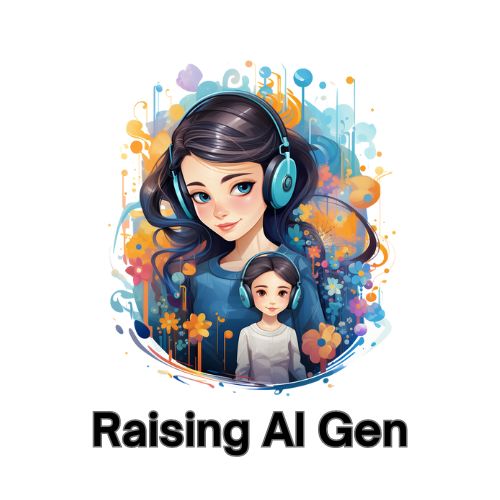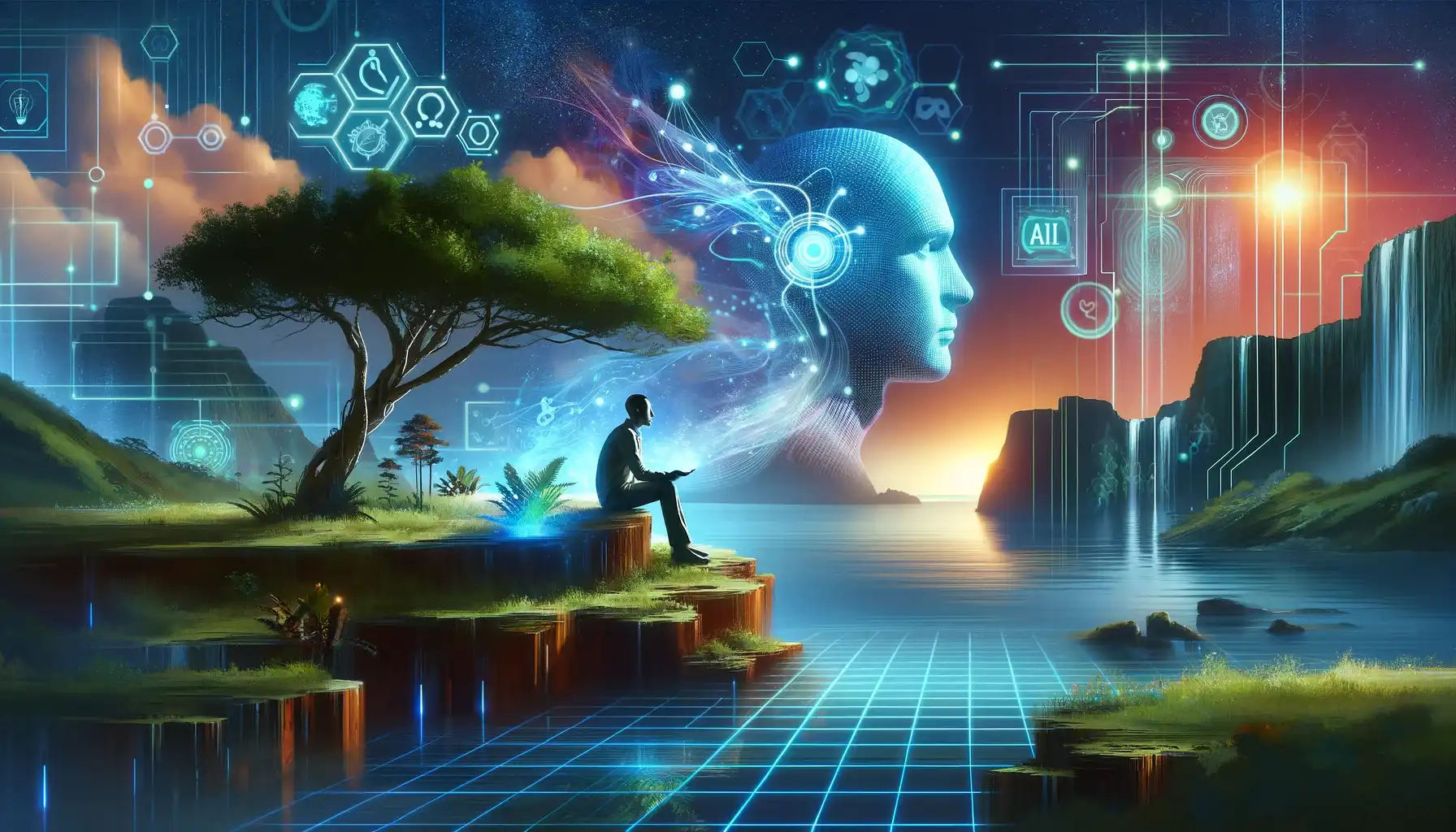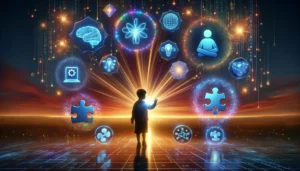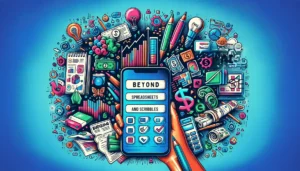The quest for AI and meaning and AI and purpose has transcended traditional boundaries to become a pivotal element of discussion in technology and philosophical circles alike. In our rapidly advancing digital era, the impact of AI on finding purpose has inevitably sparked debates, hope, and curiosity. With every iteration and innovation, artificial intelligence is redefining not just how we work, but how we perceive the world and our place within it. From the tactical defenses against cyberthreats to the subtleties of human-like decision-making, AI’s role is reaching profound depths.
At Palo Alto Networks, AI’s role in finding meaning in the digital era goes beyond ensuring digital security. The embrace of AI has shown us the possibility of a future where technology aids in filtering through the noise, allowing us to focus on what genuinely matters in both our personal and professional lives. Yoni Allon, the VP Research at Palo Alto Networks, elucidates the importance of AI in not just protecting our digital frontiers, but also paving the way towards a more purpose-driven existence.
Key Takeaways
- AI continues to transform not just business processes but also individual search for meaning and purpose.
- AI’s adaptive algorithms are pivotal in managing complex, real-world problems efficiently.
- Transparency and collaboration between AI and humans are essential for trusting the decision-making process.
- AI-driven systems potentially act as a guide, leading to insights that resonate with personal growth.
- Innovations like LLMs demonstrate AI’s expanding role in areas such as natural language understanding.
- An ethical approach to AI development is critical for its positive influence on society.
- The synergy between AI and human expertise is the cornerstone of a future where technology supports meaning and purposeful existence.
Understanding AI’s Role in Our Search for Meaning
In the grand tapestry of modern society, we are witnessing an era where leveraging AI for finding meaning and purpose in the digital age is not only a possibility but a burgeoning reality. The mechanisms through which artificial intelligence operates extend far beyond computation and analysis, touching the very essence of human introspection and our relentless pursuit of significance in an increasingly digital domain. AI’s role as a navigator in this journey towards enlightenment offers a bridge between the binary and the existential, harmonizing data with our deepest queries about life’s purpose.
The Evolution and Relevance of AI in Modern Society
Once a notion confined to the realms of science fiction, AI, as it stands today, is a fundamental cornerstone of efficiency and innovation across diverse sectors. From the complex algorithms that optimize finance and healthcare to the threat-detection systems that safeguard national security, AI’s influence is profound and clear. It underpins a transition towards a world where decisions are made not just with intuition but with informed preciseness. These algorithms are inherently designed to evolve, to learn from the past and to adapt – embodying the concept that intelligence, whether artificial or human, is never static. It is this continual evolution that reinforces AI’s influence on meaning in the digital age, underscoring its relevance and staying power.
Perspective Shifts: AI as a Partner in Human-centric Quests
The paradigm shift is palpable as AI reimagines its role from a mere tool to an intelligent partner capable of enhancing human decision-making. In finance, robo-advisers facilitate intricate financial planning, and in national security, advanced detection systems pre-empt threats, both powered by meticulously curated algorithms. When AI augments the human experience, facilitating our navigation through life’s complexities, it becomes evident that AI can indeed guide us to meaning and purpose in a digital age. Such collaborations are testaments to exploring AI’s potential in guiding us towards meaning and purpose, where human aspirations and AI’s capabilities converge.
At the intersection of humanity and technology, AI invites us to reconsider our relationship with the digital world. It proposes a future where we are co-authors with technology in scripting the narratives of our lives, weaving meaning into the fabric of an interconnected existence where AI-driven guidance for meaning and purpose becomes the instrument of our collective advancement. As we continue to explore the depth and breadth of AI, our partnership with these intelligent systems will likely shape not just the efficiencies of our daily routines but also the kind of reflective, purpose-driven beings we aspire to become.
Can AI Guide Us to Meaning and Purpose in a Digital Age?
The dawn of the digital era has ushered in a transformative shift in how we approach problem-solving and creativity. At the heart of this change is artificial intelligence, a catalyst for innovation that challenges our conventional wisdom and traditional methods. The intersection of AI with human cognition brings forth a riveting question: How profound is AI’s impact on purpose in the digital era, and can it truly infuse our lives with meaning? As we delve into the realms of possibility where AI not only serves functional roles but also enhances human potential, let us explore the avenues through which AI is reshaping our understanding of purpose and providing pathways to enlightenment.
In the sphere of cybersecurity, companies like Palo Alto Networks are leveraging AI to reinvent the landscape. With the mainstay of their defenses rooted in AI’s prowess, they’ve shown how decision-making is elevated through technology. This is but one example of the significant strides AI is taking in enhancing the efficiency and accuracy of professional domains. Yet, as we navigate these advancements, we begin to ponder the broader spectrum of AI’s influence in harnessing our creative energies and steering us towards more meaningful pursuits.
AI in Enhancing Human Decision-Making and Creativity
The digital forefront of cybersecurity, notably spearheaded by entities such as Palo Alto Networks, exemplifies AI’s adeptness at refining decision-making processes. Through the prioritization of risks and alerts, security analysts can focus on the most pressing threats, showcasing AI and meaning in action. The integration of large language models (LLMs) further bolsters this capacity, potentially transforming email filtering and phishing detection, making the digital space not merely safer but more intelligible and directed.
Beyond pragmatic uses, AI’s foray into the creative industry hints at untapped potential. With pattern recognition at its core, AI is poised to serve as a muse for human ingenuity, potentially ushering in an era where our creative expressions are informed by a symbiosis of algorithmic intuition and human creativity. It is a compelling direction, one that hints at a deeper understanding and appreciation of exploring AI’s potential in guiding us towards meaning and purpose.
AI’s Potential in Personal Development and Life Coaching
Intertwining with our personal lives, artificial intelligence is on a trajectory to redefine personal development and life coaching. AI systems, characterized by their continuous learning and adaptability, tailor experiences to the individual, suggesting a future where personalized guidance is not merely a luxury but a standard. The advent of AI as digital life coaches beckons a future where personal growth and the journey toward meaning are not navigated alone but with the support of an ever-present, insightful guide.

Drawing from an extensive array of data, these AI systems could provide nuanced insights into our behaviors and potentialities. Envision a world where the advice once confined to the intuition of human coaches is now supplemented and enhanced by the impartial, data-driven objectivity of AI. Such synergy could well lead us into an age where the quest for self-improvement and the seeking of purpose become more efficacious than ever before.
As we position ourselves within this AI-driven landscape, it’s imperative to acknowledge the transformative potential it holds for both societal and personal advancement. This technological era isn’t merely about harnessing a tool; it’s about embarking on a collaborative journey with AI that can distill the complexities of data into a clear vision for purposeful living. We stand on the cusp of a paradigm shift where AI isn’t just an aid but a profound partner in the human quest for understanding and meaning.
Leveraging AI for Personal Growth and Purposeful Living
In the quest to nurture our personal growth and anchor our lives in purpose, we increasingly find allies in digital technologies. At the helm of this movement stands artificial intelligence (AI)—a force that not only drives innovation but also surfaces as a guide in our search for meaning. AI and purpose have become interlinked as AI’s role in finding meaning in the digital era expands, offering bespoke pathways that resonate with our individual quests for fulfillment.
The Intersection of AI Technology and Mindfulness Practices
Mindfulness practices, once the sole bastion of human introspective tradition, begin to intertwine with AI. Our digital companions now come equipped with algorithms designed to enhance our focus and mental well-being. The fusion of mindfulness with these intelligent systems leads to an evolution in personal tranquility, simultaneously nurturing our mental canvas as it occurs in concert with our daily digital interactions.

AI-driven guidance for meaning and purpose exemplifies a profound cultural shift as practices like meditation and stress management become deeply personalized through technology. Apps now process our behavior, learning from our patterns to offer custom suggestions that align with our unique psychological constitutions. It’s the dawn of an era where holistic health and wellness find a robust advocate in artificial intelligence, paving the way for leveraging AI for finding meaning and purpose in the digital era.
Algorithms for Wellness: AI-driven Health and Lifestyle Recommendations
With a foundation built upon extensive datasets, AI-driven health platforms are crafting a new narrative in the sphere of wellness. Users are presented with algorithms that offer tailored advice spanning from nutrition to fitness routines, attuned closely with individual health objectives. These sophisticated algorithms aren’t just tools; they are personal wellness consultants aiming to sculpt our lifestyle choices towards optimal health and a deeper sense of personal mission.
| Health Focus | AI Influence | User Benefit |
|---|---|---|
| Nutrition Guidance | Custom meal plans based on dietary preferences and goals | Enhanced dietary adherence and nutritional balance |
| Exercise Regimens | Algorithm-generated workouts matching fitness levels | Personalized fitness growth and injury prevention |
| Mental Well-being | Stress-reduction strategies through behavior analysis | Improved mental health and emotional resilience |
| Sleep Optimization | Sleep patterns tracked and analyzed for quality improvement | Higher sleep quality leading to better daily performance |
| Lifestyle Adjustment | Lifestyle changes proposed from continuous data evaluation | Adoption of healthier habits and reduction of health risks |
The integration of these wellness algorithms into our daily lives heralds a transformative experience where personal health becomes a conscious journey supported by the prescient insights of AI. In this new dynamic, the AI does not overshadow but rather enhances human choice, affording number 5 dimensions of health and wellness management that were once unattainable. By steering us through the complexities of our well-being with informed precision, AI proves to be an essential participant in our pursuit of a purposeful existence.
AI’s Ethical and Philosophical Implications in the Digital Era
The proliferation of artificial intelligence technology has brought to light significant ethical and philosophical conundrums. As we grapple with the inquiry “Can AI guide us to meaning and purpose in a digital age,” we must also contend with its potential to echo and amplify human biases inadvertently. The intertwining of AI in our lives raises an array of considerations regarding how these systems impact societal values and individual identities, begging the question of how society can leverage AI while preserving the fabric of equity and moral integrity.
The automated nature of AI and algorithms, while beneficial in efficiency, can inadvertently lead to instances that undermine privacy or diminish accountability. This underscores the escalating need for mechanisms of transparency in AI systems to understand and audit their decision-making processes—a sentiment echoed by scholars who have proposed regulatory frameworks akin to an “FDA for Algorithms.” Such oversight strives to protect the public and ensure that the impact of AI on finding purpose aligns with our communal ethos, safeguarding against the subversion of essential human principles.
Considering the possible ethical pitfalls, structured vigilance becomes a necessity in the widespread integration of AI. As our society continues to navigate the intriguing and complex relationship between humanity and intelligent machines, ensuring that AI propels us forward in our search for meaning, without curtailing human rights, becomes paramount. Thus, the dialogue surrounding AI’s development is not just about engineering and data processing—it’s about forging a pathway that harmonizes technological progress with a purpose that resonates on a deeply human level.
Frequently Asked Questions
| Question | Answer |
|---|---|
| How can we use AI for navigation purposes? | AI can be used for navigation by analyzing vast amounts of data from various sources such as GPS, traffic patterns, and user preferences. This helps in providing real-time traffic updates, route optimization, and even predictive traffic conditions, enhancing the overall navigation experience. |
| How can AI help digital transformation? | AI aids digital transformation by automating processes, providing insights through data analysis, enhancing customer experiences with personalization, and improving decision-making with predictive analytics. It helps businesses become more efficient, responsive, and adaptive in the digital era. |
| What can artificial intelligence (AI) not do for you? | AI cannot replicate human emotions, understand contextual nuances at a deep level, or make ethical decisions based on moral understanding. It also cannot be creative in the same way humans are, as it relies on existing data and algorithms for its operations. |
| Is artificial intelligence the ability of a digital… | Artificial intelligence is the capability of digital systems, machines, or computers to perform tasks that typically require human intelligence. This includes learning from experiences, understanding complex content, engaging in various forms of reasoning, and adapting to new situations. |
| Can AI replace human creativity? | AI cannot fully replace human creativity. While it can generate novel content based on patterns and data, true creativity involving emotional depth, original thought, and understanding of complex human experiences remains a uniquely human trait. |
| How does AI impact our daily lives? | AI impacts our daily lives in numerous ways – from personalized recommendations on streaming services and online shopping to voice assistants in our homes. It also enhances healthcare, improves safety features in cars, and optimizes energy use in our homes and cities. |
| What are the ethical considerations in AI? | Ethical considerations in AI include ensuring fairness and avoiding bias in AI algorithms, respecting user privacy, maintaining transparency in AI decision-making processes, and considering the broader societal impacts, like job displacement and security concerns. |





